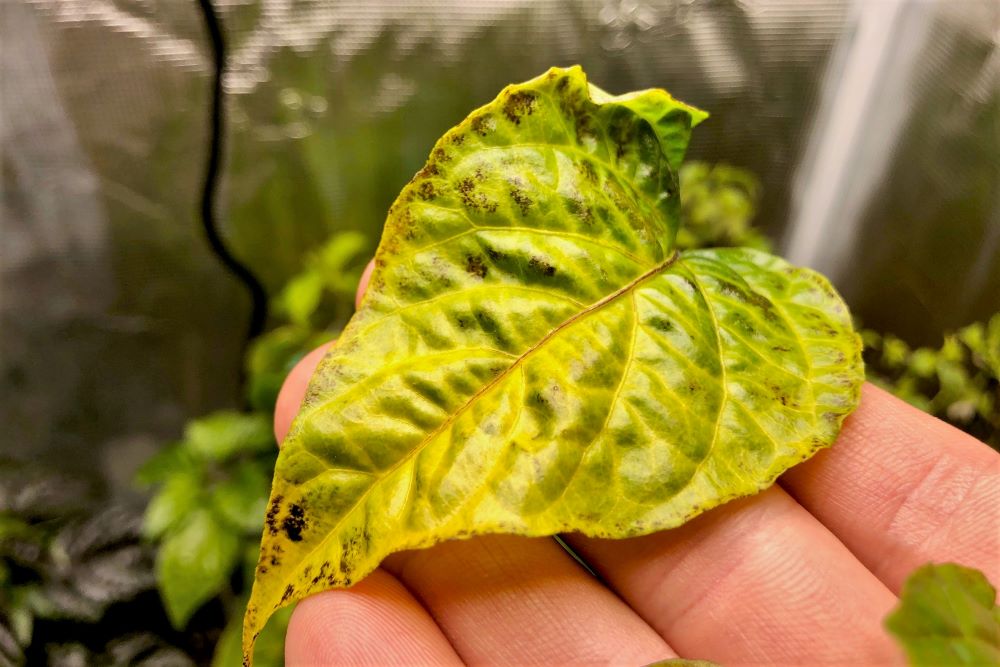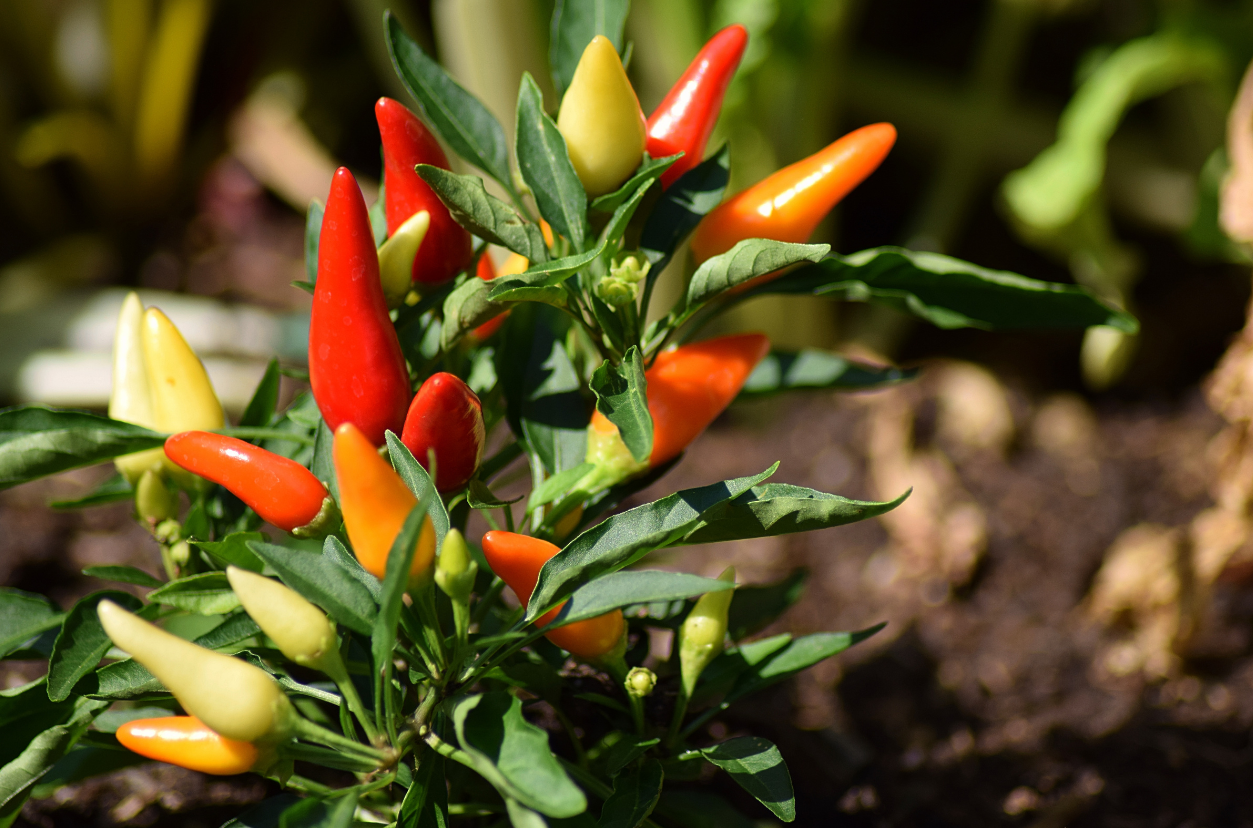Discover the Best Fertilizers for Peppers and Enhance Your Yard's Return
Discover the Best Fertilizers for Peppers and Enhance Your Yard's Return
Blog Article
Organic Vs. Synthetic Fertilizers: Which Is Best for Supporting Healthy Pepper Plants?
In the realm of nurturing healthy and balanced pepper plants, the choice in between organic and artificial fertilizers stands as a critical choice with far-reaching effects. While both choices aim to offer necessary nutrients to support plant development, the subtleties of their effect on the soil, plant health, and the setting spark a dispute that echoes throughout the gardening neighborhood. Comprehending the distinctive benefits and potential pitfalls of each fertilizer type is essential for pepper growers seeking to maximize their yields while maintaining an eco-conscious and sustainable technique.
Advantages of Organic Plant Foods
Organic fertilizers offer an environmentally-friendly and lasting method to beneficial pepper plants, offering important nutrients without using synthetic chemicals. These all-natural plant foods are obtained from natural resources such as compost, manure, bone dish, and algae, advertising soil health and wellness and biodiversity. Unlike synthetic fertilizers, organic options release nutrients gradually, making sure a well balanced and steady supply for pepper plants to thrive.
One substantial advantage of organic plant foods is their capability to boost soil framework and water retention. By enhancing dirt health and wellness, natural fertilizers promote advantageous microbial task, which assists in nutrient uptake by pepper plants. In addition, natural fertilizers decrease the risk of chemical run-off, protecting water resources from air pollution and safeguarding the setting.
Additionally, natural plant foods add to lasting soil fertility by promoting the growth of useful soil organisms. These organisms assist damage down raw material, launching nutrients in a kind that is conveniently obtainable to pepper plants. best fertilizers for peppers. By fostering a healthy soil community, organic fertilizers support lasting pepper farming techniques that profit both plants and the environment
Drawbacks of Synthetic Fertilizers
Artificial fertilizers, unlike their organic counterparts, pose various downsides when made use of to nurture pepper plants, influencing both plant wellness and environmental sustainability. One major disadvantage of synthetic fertilizers is their tendency to seep nutrients from the dirt promptly. This quick leaching can result in nutrient discrepancies in the soil, causing plants to experience poisonings or deficiencies. Furthermore, synthetic plant foods can damage helpful dirt microorganisms, such as earthworms and helpful microorganisms, interfering with the soil environment's balance.
Moreover, the overuse of artificial plant foods can add to water pollution. Excess plant foods not absorbed by plants can remove into water bodies, causing eutrophication, where algae flowers diminish oxygen levels in the water, harming water life. Additionally, artificial fertilizers are generally acquired from non-renewable sources, such as nonrenewable fuel sources, adding to carbon exhausts and ecological destruction during their production.
Nutrient Absorption Contrast
When comparing natural and artificial plant foods in terms of nutrient absorption, organic plant foods have the benefit of supplying an extra well balanced and slow-release source of nutrients. Organic plant foods contain a range of macro and trace elements that are not just beneficial for the plants however also advertise healthy soil microbial task, which aids in nutrient uptake.
Moreover, natural plant foods boost dirt framework and water retention capability, enabling pepper plants to accessibility nutrients extra successfully. This better dirt top quality helps with root development, allowing better nutrient absorption. Synthetic fertilizers, although initially boosting plant development as a result of their high nutrient focus, might hinder long-term nutrient absorption by derogatory dirt health and wellness in time.
Environmental Impact Considerations

On the other hand, artificial fertilizers, although typically more focused and promptly offered to plants, can have damaging results on the atmosphere otherwise used correctly (best fertilizers for peppers). Their manufacturing needs high energy inputs, leading to greenhouse gas discharges and contributing to environment change. The overflow of excess artificial fertilizers can infect water sources, leading to eutrophication and hurting marine environments.
Finest Plant Food Practices for Peppers
To accomplish this, it is vital to comply with finest plant food methods customized to the certain requirements of pepper plants. One vital method is to do a soil test before applying any plant foods.
An additional vital technique is to feed pepper plants at the right time. Normally, peppers gain from getting fertilizer at planting and afterwards once more when they start to flower. Over-fertilizing can bring about vitamins and mineral inequalities and hurt the plants, so it is essential to follow recommended application prices.
Furthermore, choosing a balanced plant food with an NPK ratio that matches pepper plants' requirements is basic. Eventually, incorporating synthetic and natural fertilizers deliberately can help support healthy pepper plants while lessening environmental effect.
Conclusion

Organic plant foods offer a lasting and environmentally-friendly method to beneficial pepper plants, providing necessary nutrients without the usage of synthetic chemicals. Unlike synthetic plant foods, organic get redirected here options release nutrients gradually, making certain a well balanced and steady supply for pepper plants to flourish.
Artificial fertilizers, in contrast to their organic counterparts, present numerous disadvantages when utilized to nourish pepper plants, influencing both plant wellness and environmental sustainability. When comparing organic and synthetic fertilizers in terms of Go Here nutrient absorption, natural plant foods have the benefit of giving an extra well balanced and slow-release resource of nutrients.Furthermore, organic fertilizers improve soil structure and water retention capability, permitting pepper plants to accessibility nutrients more efficiently.
Report this page